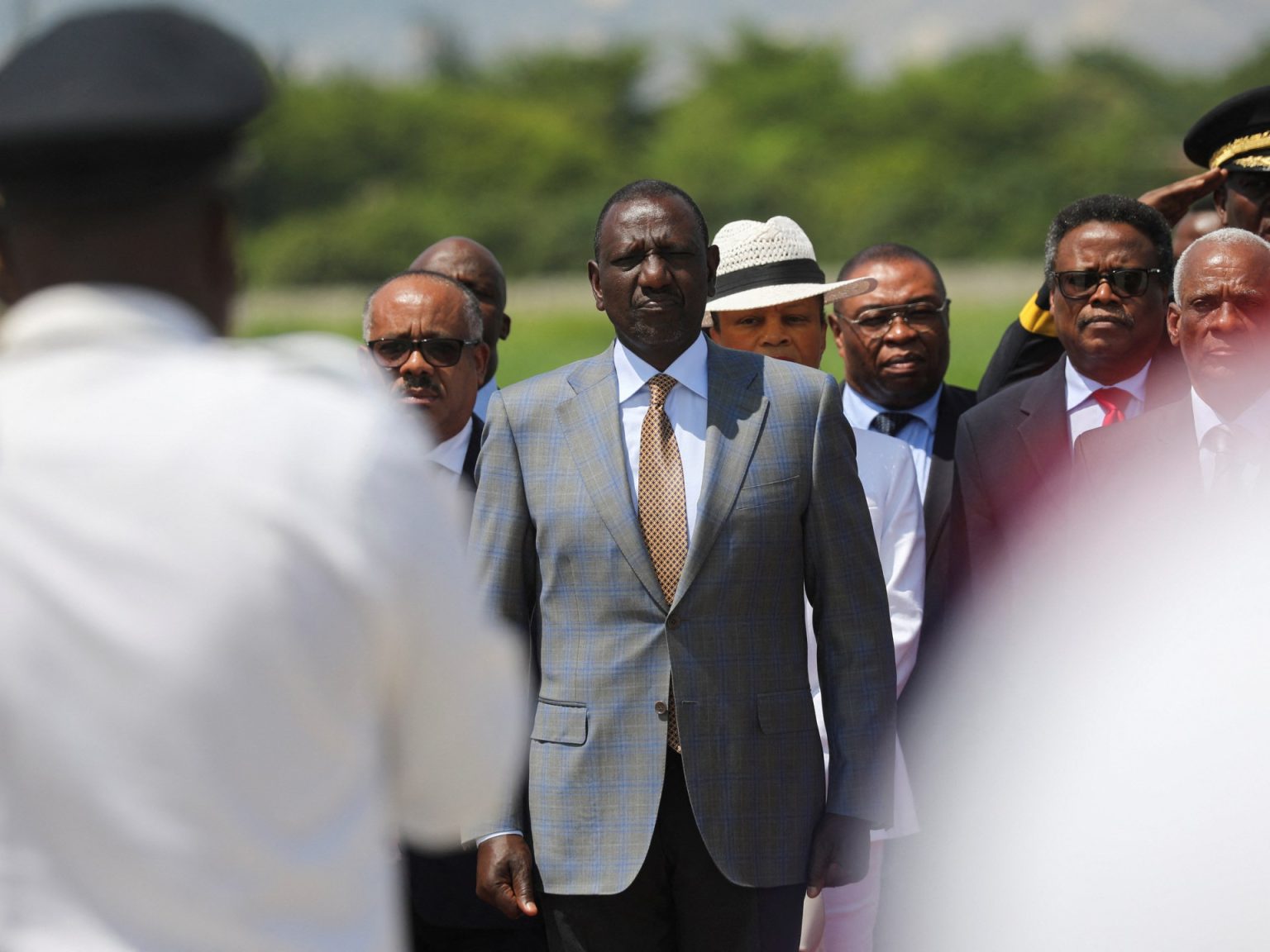Kenyan President William Ruto recently visited Haiti to assess the progress of the Kenya-led security mission in the country. The visit comes amid growing concerns about deepening violence and insecurity in Haiti, where armed groups have been vying for influence and control of territory for years. The Kenyan contingent, working alongside Haitian counterparts, was deployed to tackle a surge in gang violence, which prompted the resignation of Haiti’s unelected prime minister and the deployment of the Kenyan police.
Despite the presence of foreign police officers in the country, insecurity remains rampant in Haiti, with armed groups believed to control a significant portion of Port-au-Prince. More than half a million Haitians have been internally displaced as a result of the violence, living in squalid conditions while awaiting a safe return to their homes. The situation has been described as a dire humanitarian crisis by a UN human rights expert, who highlighted the mission’s inadequate equipment and insufficient resources in countering the armed groups.
The Multinational Security Support Mission (MSS), backed by the United States, has deployed less than a quarter of its planned force, with its mandate set to expire early next month. Efforts to secure additional support for the mission have been ongoing, with plans to convene a meeting at the UN General Assembly to encourage contributions to meet Haiti’s security, economic, and humanitarian needs. There have been discussions about transitioning the mission into a UN peacekeeping operation to address the security challenges facing Haiti.
While UN interventions in Haiti have faced criticism in the past, including allegations of causing harm and abuse, civil society groups in the country have expressed the need for assistance to combat the violence. They have emphasized the importance of addressing systemic problems in Haiti, highlighting that a security deployment alone may not be sufficient. Safeguards are being called for to prevent possible abuses by the international police force and to ensure that interventions are aligned with the needs and priorities of the Haitian people.
Overall, President Ruto’s visit to Haiti underscores the ongoing challenges facing the country in terms of violence and insecurity. The presence of foreign police officers, including the Kenyan contingent, has had a limited impact on addressing the root causes of the violence in Haiti. As the UN-backed mission’s mandate expires, there is a need for sustained support and resources to effectively address the security situation in the country. The international community, including the US, is working towards securing additional assistance and maintaining focus on Haiti’s security, economic, and humanitarian needs.


